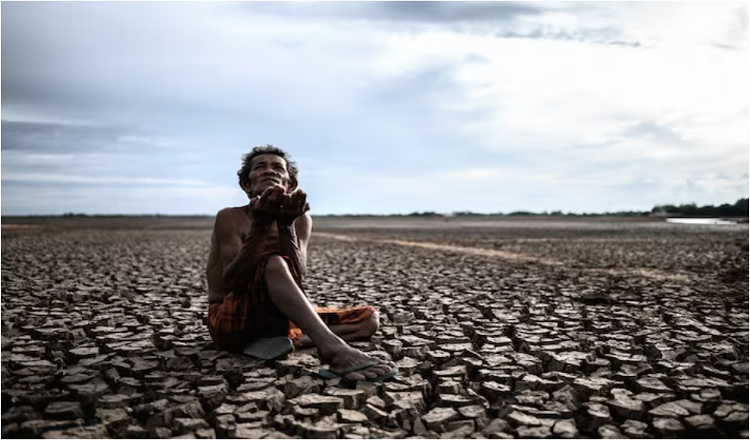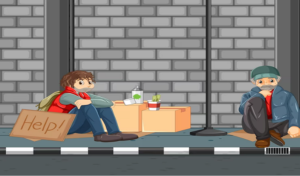The impact of climate change on poverty and homelessness

Homelessness has been a problem for years, and millions of people all over the world are affected by it. It is a complicated issue that can have serious effects on the health and safety of the people. Homelessness can be caused by many things, like being poor, losing a job, being addicted to drugs, having a mental illness, or having a family break up. Homelessness has effects on more than just the person who is homeless. It can have a big effect on the community as a whole. In this piece, we’ll talk about how homelessness affects the health and safety of the public.
The Health Risks of Being Without a Home
Being homeless hurts both the mental and physical health of a person. People who are homeless are more likely to get diseases that can spread, like tuberculosis, HIV, and hepatitis. One study found that homeless people are three times more likely than the rest of the community to have a long-term illness. People who are homeless may also be malnourished and not take care of themselves well, which can lead to skin diseases, rashes, and other illnesses. Because of the stress of living on the streets, homeless people tend to die younger than the normal person.
Brain health
Even being homeless can have an effect on your mental health. Research shows that homeless people are more likely to have mental disorders like sadness, PTSD, anxiety, and others. The lack of security and steadiness that comes with being homeless can make these problems worse.
Effect on people’s health
Homelessness hurts public health in a big way. People who are homeless are more likely to have long-term illnesses, problems with drugs, and mental issues. People who are homeless often have health problems that can spread to other people in the area. People who are homeless can spread diseases and infections to the rest of the population through touch with dirty needles, sexual contact, and other ways.
Environmental Factors
Homelessness is also linked to living situations that aren’t clean, which can lead to the spread of diseases. People who are homeless often can’t get clean water, which can cause them to get dehydrated. They may also be exposed to toxins and pollutants in the surroundings that are bad for their health.
Safety Risks of Being Without a Home
Not only is homelessness bad for public health, but it also puts the people who are homeless in danger. People who are homeless are at risk of physical violence, abuse, and being taken advantage of. They could also be robbed, sexually assaulted, or hurt in other ways.
Homeless Encampments
Camps of homeless people can also pose a threat to safety. These places can be fire hazards and are often near parks, schools, and companies that could be hurt. Camps of homeless people can also attract crime and make it more likely that people will use drugs and commit crimes linked to drugs.
How society can help people who are homeless
Homelessness is a complicated social problem that needs a full reaction from society as a whole. The government has a big part to play in helping and giving resources to people who are homeless. To reduce homelessness, people should have access to affordable housing and jobs, and steps should be made to deal with what makes people homeless in the first place.
Groups that don’t make a profit
Non-profit groups also do a lot to help people who are homeless. They help people who are in need by giving them food, housing, and medical care. They also offer information and outreach to help keep people from becoming homeless.
Conclusion
Homelessness is a serious social problem that has big effects on the health and safety of the people. People who are homeless are more likely to get long-term illnesses, abuse drugs, and have mental health problems. People who are homeless can also be at risk for their safety. To help people who are homeless, the government, non-profit organisations, and the community all need to work together. Homelessness affects more than just the person who is homeless, so it’s important to know how important it is to give support and resources to help solve this complicated problem.
Read More You May Like:
- The effects of poverty on mental health and well-being
- The effect of homelessness on public health and safety
- Reducing poverty through access to quality education and employment
- How to provide support and resources for people experiencing poverty and homelessness
- The effects of poverty on mental health and well-being








